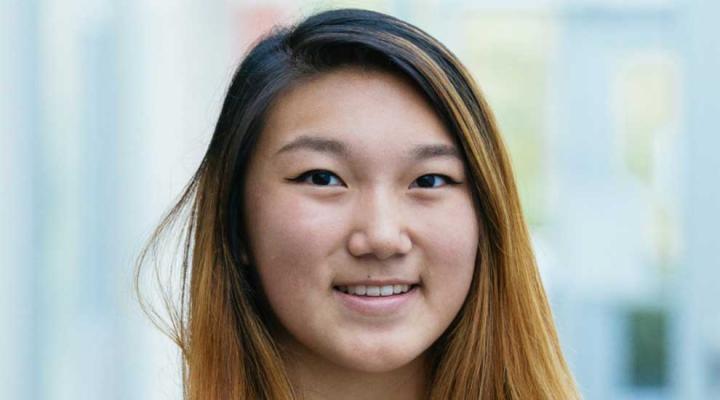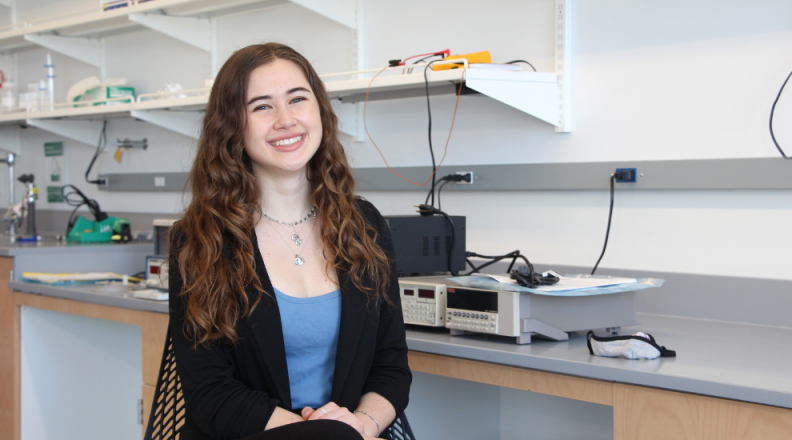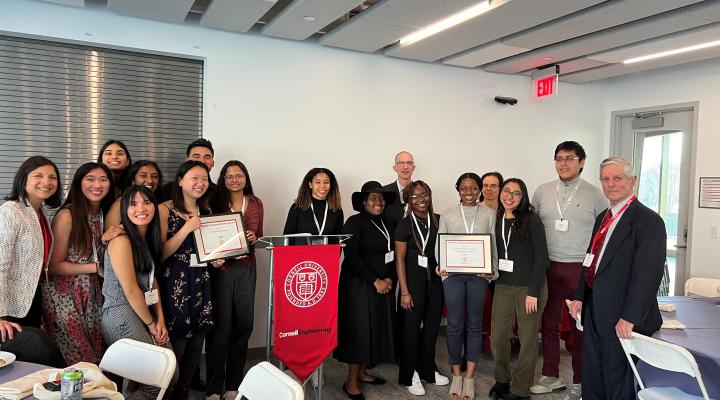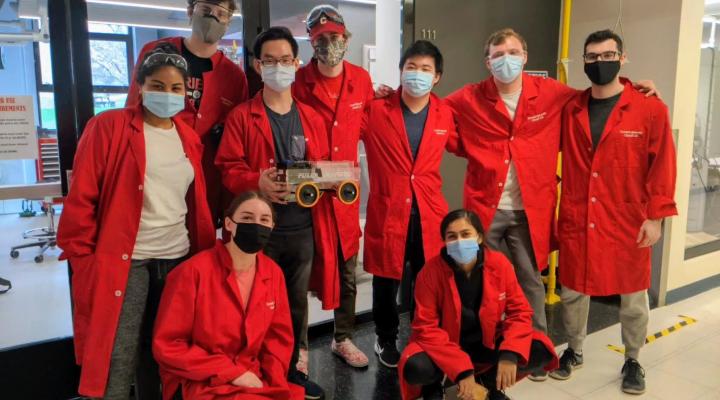Jordan Sandell ’23 received an Engineering Learning Initiatives Summer Research Award which facilitates her to work with Elaine Petro, assistant professor in the Sibley School of Mechanical and Aerospace Engineering to test novel approaches for creating and analyzing ice materials in the solar system that could potentially contain biomolecules. Sandell is majoring in mechanical engineering and minoring in aerospace engineering, business for engineers, and fashion studies.
Sandell’s research aims to solve issues encountered by previous space probes, like the ones used in the Cassini mission when sampling the plumes of Saturn’s water-rich moon, Enceladus. The techniques proposed for this research feature soft-ionization techniques which allow Sandell and the ASTRALab to detect large biomolecules as opposed to hard-ionization techniques used in the past that break down these large biomolecules.
Over the course of the summer, Sandell will be performing several experiments to generate and characterize ions from organic-rich samples.
“The experiments will investigate a technique called vacuum electro-spray ionization (vESI), an approach developed from terrestrial bio-sample mass spectrometry,” says Sandell. “By adapting the ESI process for usage in space, this project aims to expand the accuracy of tools used in the search for extraterrestrial life.”
Sandell noted the many different types of mentorship she has received since arriving at Cornell – both from fellow students and faculty in the department. During her time as a member of CUAir, a Cornell Engineering project team, Sandell found the mentorship from upperclassman and students her own age extremely helpful with adjusting to a new environment, figuring out what classes to take, and discovering all the opportunities available.
As she began exploring future career opportunities, Sandell sought more career-related mentorship from the graduate students in ASTRALab and Petro who leads the lab.
“I think each of these types of mentorship have been extremely important in shaping my Cornell experience,” says Sandell. Because of this exposure to mentorship, I know that as I continue to progress in life, I will always seek out and value the guidance that those around me offer.”
Sandell was drawn to Cornell Engineering because of the dedication to reducing the gender gap in STEM fields. Throughout high school, Sandell worked to reduce the gender gap in the STEM fields by making education available to as many women as possible. In high school, she was the president of Students for KEEP, an organization that raised money to allow girls in Kenya to receive an education at the Kakenya Center for Excellence. Sandell worked with Kakenya to fund many of the girls’ tuitions, provide the Kakenya Center for Excellence with supplies, and raise awareness of their cause.
“Cornell seemed to share my goal of reducing this gender gap, as is evident by the equal 50-50 divide in the percentages of male and female undergraduate engineers that they consistently keep on their campus,” says Sandell. “At Cornell, I knew I would be surrounded by women just like myself who were actively challenging social norms and who shared my aspirations for STEM fields for the future.”
In addition to working with the ASTRALab and CUAir, Sandell is also the Director of Service and Philanthropy for Pi Beta Phi, where she organizes events to fundraise for Read Lead Achieve, which targets efforts to improve literacy rates. She was also a founding member of Cornell Chapter of Women in Aeronautics and Astronautics (WOAA) and became the Technical Development Lead for the organization. Students in WOAA are pursuing careers in the aerospace industry and are striving to create a community of women who encourage and support each other’s professional and other aspirations.






